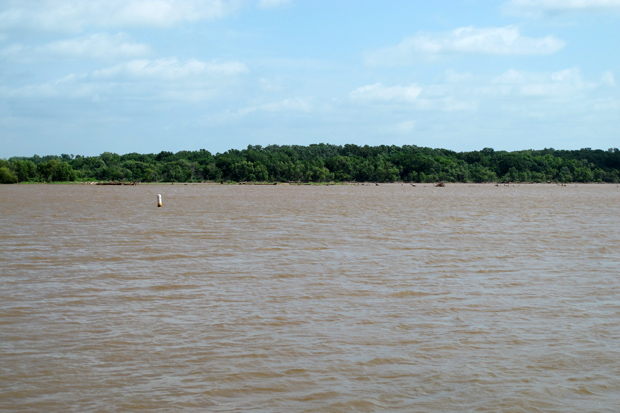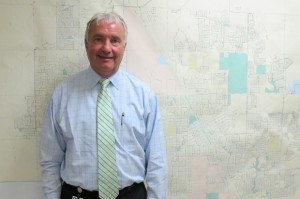Norman’s Choice: Wastewater Reuse or Reliance on Oklahoma City’s Pipelines
-
Logan Layden
Oklahoma’s third largest city is at a water crossroads.
Norman is updating its strategic water supply plan to make sure it has enough to meet growing demand over the next 50 years. And the city council’s choice is between reliance on Oklahoma City and water from southeast Oklahoma, or reusing its own wastewater.
After two years of study and public input, more than a dozen plans were narrowed down to two, portfolio 14 and portfolio 13.
Portfolio 14
Lake Thunderbird is the main source of Norman’s municipal water supply, and under portfolio 14, would someday soon also be where the city’s wastewater is discharged. Norman Utilities Director Ken Komiske:
“Across the country sewage treatment plants are changing their names to water reclamation or water resource centers,” Norman Utilities Director Ken Komiske says, “because water is a resource you get to use over and over and over. We don’t make water. It’s the same water that’s been here for tens of thousands and millions of years.”
Here’s the idea: Water would be pumped from Thunderbird, cleaned, and distributed to the community. Then, when someone takes a shower, uses the kitchen sink, or flushes the toilet, that water would be cleaned again. And instead of sending it down the Canadian River — like the city does today — it would come right back to Lake Thunderbird, and the cycle would continue.
As StateImpact has reported, the Oklahoma Department of Environmental Quality can permit such projects now, after Norman lawmakers pushed for a wastewater reuse measure this past legislative session that Governor Mary Fallin ultimately signed.
Grossed out yet? You shouldn’t be. J.D. Strong, executive director of the Oklahoma Water Resources Board, says places like El Paso, Las Vegas, and Phoenix have proven the safety of water reuse, and Norman isn’t the only Oklahoma town considering it.
“Guymon has been talking about it. Clinton has been talking about it. And there are a few others out there. So, it’ll be a matter of, sort of, who gets it done first — at least officially,” Strong says. “Like I tell everybody all the time, if you’re relying on a surface water source for your water in the state of Oklahoma, you’re most likely drinking somebody else’s wastewater discharge.”
He cites the example of El Reno’s wastewater flowing down the North Canadian, then being used for municipal drinking water in Oklahoma City.
That’s one of the Norman City Council’s options — augmenting Lake Thunderbird.
Portfolio 13
The other option — portfolio 13 — is similar. Both call for better groundwater treatment, more wells, and conservation.
The key difference between the two plans is portfolio 13 — instead of augmenting Lake Thunderbird — relies on a partnership with Oklahoma City to pipe more water from southeast Oklahoma.
Utilities Director Komiske says he expects the council to make a decision within its next few meetings, and residents seem to be leaning toward the more self-reliant, cheaper, option — though both will cost hundreds of millions of dollars over the course of decades. Going in with OKC would mean massive upfront costs.
“You’ve got to build the whole pipeline, even if you only use it half full, you’ve got to build this whole pipeline,” Komiske says, “and that’s over a billion dollar expense just for that pipeline.”
Norman would have to commit to sharing that cost, which brings up another problem.
“We’re the only city in the State of Oklahoma that has to have our customers vote on their water rates. So it’s very, very difficult,” Komiske says. “Other communities would say, ‘Okay, here’s a plan. We’ll go forward and we know we can raise rates.’ Well, in Norman we’d say, ‘Here’s a plan. We’d like to go forward. We have to ask our customers if they’re really willing to pay for this before we can even take that step forward.’
Unsurprisingly, Normanites don’t charge themselves more for water every time they get a chance.


